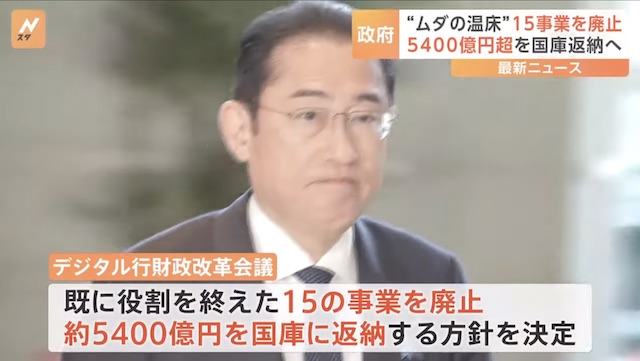TOKYO, Apr 23 (News On Japan) - In a significant move against what has been labeled as "breeding grounds for waste," the Japanese government has decided to terminate 15 state-funded projects, planning to return more than 540 billion yen to the national treasury.

Prime Minister Kishida underscored the need for stringent review and integration of administrative and budget processes across all budgetary projects, including those funded through these specific funds. "Enhance the administrative project review and budget coordination, including funds, and push forward with systematization and opening up," Kishida directed.
At a time when the funds accumulated for long-term projects had ballooned to 16.6 trillion yen as of last March, there has been a notable lack of oversight regarding their utilization, which has drawn criticism for inefficiency.
During the Digital and Fiscal Policy Reform Meeting held at the Prime Minister's Office, it was resolved to abolish 15 projects that had outlived their roles and return over 540 billion yen to the treasury.
Moreover, due to the presence of several projects without a designated completion date, the government has now decided to set a standard ten-year time limit for such initiatives moving forward.
Source: TBS















